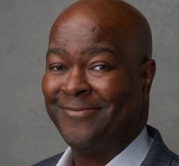The value of thinking broadly about leadership learning
Being committed to talent development helps credit unions successfully execute their missions. Here’s how this idea extends to the charitable organizations that CUs support

Leadership matters because leaders who inspire extraordinarily performing teams are the ultimate advantage for any organization—whether that organization is a business, a nonprofit or a sports team.
In this article from Inc. magazine, author Lee J. Colan, Ph.D., acknowledges that it might be hard to believe that one factor can have such a profound impact on performance. But, he notes, our daily experiences—and plenty of research—prove over and over that inspiring leaders boost organizational success.
Co-founder of The L Group, Colan cites a study “of 30,000 leaders that found the top 10% of leaders generated twice the net income as the middle 80%. The study also identified one critical competency that distinguished the top tenth percentile of leaders from the rest: the ability to inspire and motivate others to high performance.”
Organizations debate whether they must hire “born” leaders to inspire team performance—or whether they can develop them through formal education approaches or on-the-job learning experiences. Illustratively, when The Center for Creative Leadership researched this question, asking 361 C-level executives “Are leaders born or made?”, nineteen percent of respondents believed that leaders are more born, 52% believed they are more made, and 29% believed that leaders are about equally born and made.
But, this CCL article emphasizes, this can be a moot point. “Regardless of how you answer the question ‘Are leaders born or made?’ you can continue to improve your organization’s leadership bench strength by providing your team with access to varied developmental experiences,” the article says. “When you make sure that your people have adequate access to developmental experiences, coaching, mentoring, training and other leadership experiences, they have the opportunity to learn and become better leaders. Whether these experiences draw out and boost natural abilities or create new leadership skills may be debated—but either way, the organization benefits.”
At CUES, we have a great deal of evidence that learning can boost leaders’ skills and their ability to inspire their teams. One example is a mid-level compliance staffer who boosted her engagement at work by taking 42 online leadership courses. Another is a CEO who told us his board had sent him to our flagship executive development program so he could learn how to save his small credit union—and it was working.
We deeply appreciate all of you in the credit union industry who are committed to your own development and that of your teams. We’re now offering you the opportunity to think about leadership development even more broadly.
What if the community organization or nonprofit your credit union believes in the most could develop its leaders and team members like you do at your credit union? Imagine how much more effective your favorite charity could be in delivering on its mission if it were developing its people to their fullest potential. Our new division, TalentED, works with nonprofits to develop the leadership potential of their executive teams, board members, and staff. I hope you’ll check it out and consider helping your partner nonprofit organizations connect with the TalentED team.

